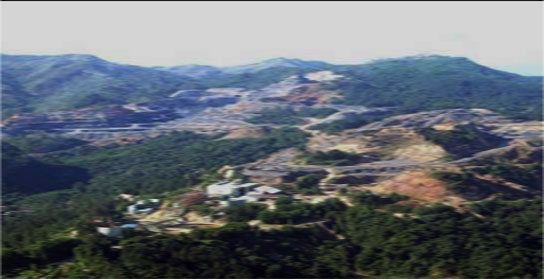The following was co-written by Diana Martin of MiningWatch Canada and Jan Morrill of Earthworks.
Recent developments surrounding Barrick Gold’s moves to significantly expand the Pueblo Viejo gold mine in the Dominican Republic have concerned civil society, highlighting a significant lack of transparency on the part of the government and the company. Transparency plays a vital role in ensuring the responsible governance of mineral resources and the Extractive Industries Transparency Initiative (EITI) has emerged as a global standard to promote accountability and address the impacts associated with the “resource curse.”
The Dominican Republic joined the Extractive Industries Transparency Initiative in 2016 and Barrick Gold was the first company to be a signatory to the initiative. The EITI standard requires that the government, extractive companies and civil society are fully, actively and effectively engaged in the EITI implementation process.
EITI member countries must disclose how they allocate licences and how much revenue they receive from companies. Similarly, EITI supporting companies like Barrick Gold are encouraged to meet the set of Expectations, including contributing to public disclosure of contracts and licenses.
Throughout the expansion process for the Pueblo Viejo mine, impacted communities express that neither the Dominican government nor Barrick have upheld their commitments to EITI’s requirements and expectations, respectively. Instead, they explain that the expansion process has been characterized by numerous barriers to access information and limited public engagement.
Opaque Expansion Process
In 2020, Barrick Gold proposed an expansion of the Pueblo Viejo mine that included a new tailings dam, reportedly the Naranjo Tailings Storage Facility (Naranjo TSF), in a community that sits west of the current El Llagal tailings dam. The US$1.3 billion expansion is expected to take the mine life beyond 2040 and support an annual production of more than 800,000 ounces of gold. Since the announcement, Dominican local communities and civil society organizations have been seeking information on the status and substance of the expansion but their requests have gone unanswered.
Since December of 2022, communities and civil society have made repeated requests to the Dominican government and Barrick to release information on the Environmental and Social Impact Assessment (ESIA) for the new tailings dam, to no avail. According to a technical report published in March of 2023, the ESIA was submitted to the government in October of 2022. Communities have also raised concerns that the public comment period was carried out without their knowledge and therefore was not sufficient to allow communities to fully engage with the process.
In May of 2023, a Dominican newspaper reported that the Dominican government approved an environmental license (LA-0501-23) for the construction of the new tailings dam. The company states it will need to relocate seven communities to build the dam, and claims it would be “one of the largest earth core rockfill dams in the world.” Communities criticized the government for approving this license without providing basic details about the project’s scope and impacts.
Demanding Accountability under EITI
Marking EITI’s 20th anniversary, the ninth EITI Global Conference is scheduled to take place in Dakar, Senegal, from June 13-14. During these two days of exchanges, over 1,000 stakeholders will take stock of progress in publishing and utilizing open data to inform policy-making and multi-stakeholder dialogue in the extractive sector. This conference presents a unique opportunity for the Dominican government and Barrick to rectify their lack of transparency and respond to the calls from civil society and international organizations for the immediate disclosure of relevant information of the Naranjo TSF.
Civil society groups from Dominican Republic, including representatives from the Observatorio Dominicano de Políticas Públicas (UASD) and the Instituto de Abogados para la Protección del Medio Ambiente (INSAPROMA), will be addressing a panel looking at the strategies for implementing the social and and environmental provisions of the 2023 EITI Standard at the national level. They will be stressing the importance of transparency on the disclosure of social-environmental impacts of extractive projects.
In addition, these groups will take this opportunity to submit a formal request to Barrick urging it to release the ESIA for the Naranjo TSF, the environmental license LA-0501-23, and a list of public visits carried out for the Naranjo TSF, in accordance with Barrick's internal and external voluntary commitments to transparency.
The lack of transparency surrounding the Pueblo Viejo mine expansion in the Dominican Republic raises concerns about the government and Barrick’s adherence to EITI standards. Efforts to promote accountability and good governance of mineral resources should not be undermined by withholding vital information from communities and limiting meaningful community engagement.
